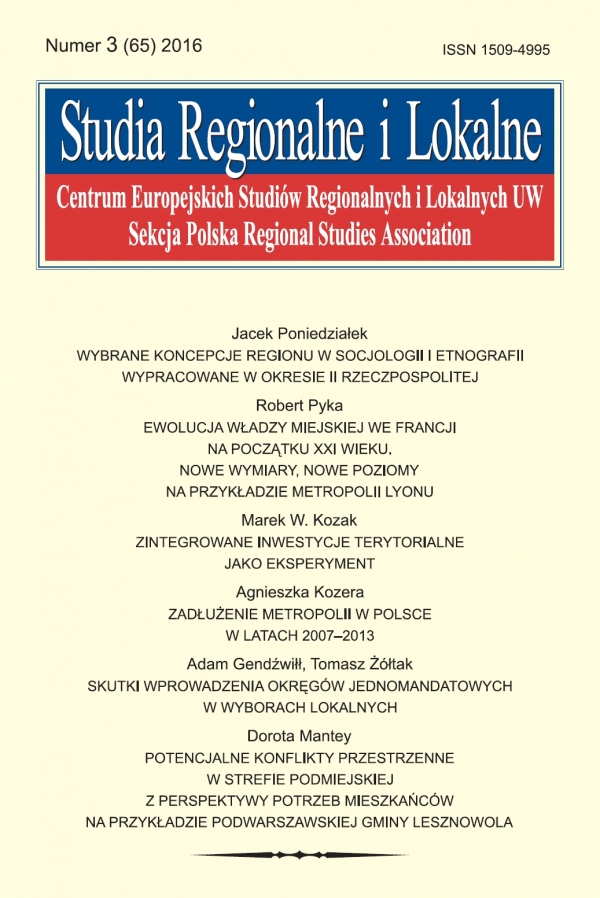Issue:
3(65)/2016
Marek Kozak
Integrated Territorial Investments as an experiment
DOI: 10.7366/1509499536503
Zintegrowane inwestycje terytorialne jako eksperyment
Celem artykułu jest analiza przyczyn powstania zintegrowanych inwestycji terytorialnych (ZIT) w nowym okresie 2014–2020 w kontekście reform UE oraz analiza procesu tworzenia ZIT i zagrożeń, jakie wynikać mogą dla tego eksperymentalnego podejścia w Polsce. Podstawowa teza głosi, że eksperymentalna koncepcja ZIT powoduje dodatkowe konflikty między zarządzającymi a beneficjentami przywykłymi, że cele (działania) ogólne polityki odbiegają od faktycznie realizowanych. Hipoteza uzupełniająca zaś głosi, iż istnieją istotne czynniki potencjalnie sprzyjające ograniczeniu radykalnej reformy i przywróceniu status quo („oswojenia” wymagań). Główne metody (studia literaturowe oraz udział w pracach przygotowawczych w roli eksperta ministerstwa) determinują strukturę źródeł.
Integrated Territorial Investments as an experiment
The main objective of this paper is to analyze the reasons of development of the Integrated Territorial Investments in the new 2014-2020 period in the context of EU reforms, and to describe the creation process and the threats this experimental approach may encounter in Poland. The Author’s main thesis is that the experimental ITI concept causes additional conflicts between management authorities and beneficiaries who are used to the fact that declared and implemented intervention aims are different. The Author also assumes that there exist important factors that could potentially hinder the radical reforms and re-establish the status quo (or “domesticate” the policy). The main methods (desk research and involvement in preparatory works as a Ministry expert) determine the structure of the sources used. The paper offers some conclusions.
Affiliation:
Marek Kozak: Uniwersytet Warszawski, Centrum Europejskich Studiów Regionalnych i Lokalnych, EUROREG, ul. Krakowskie Przedmieście 30, 00-927 Warszawa;
m.kozak@uw.edu.pl 


